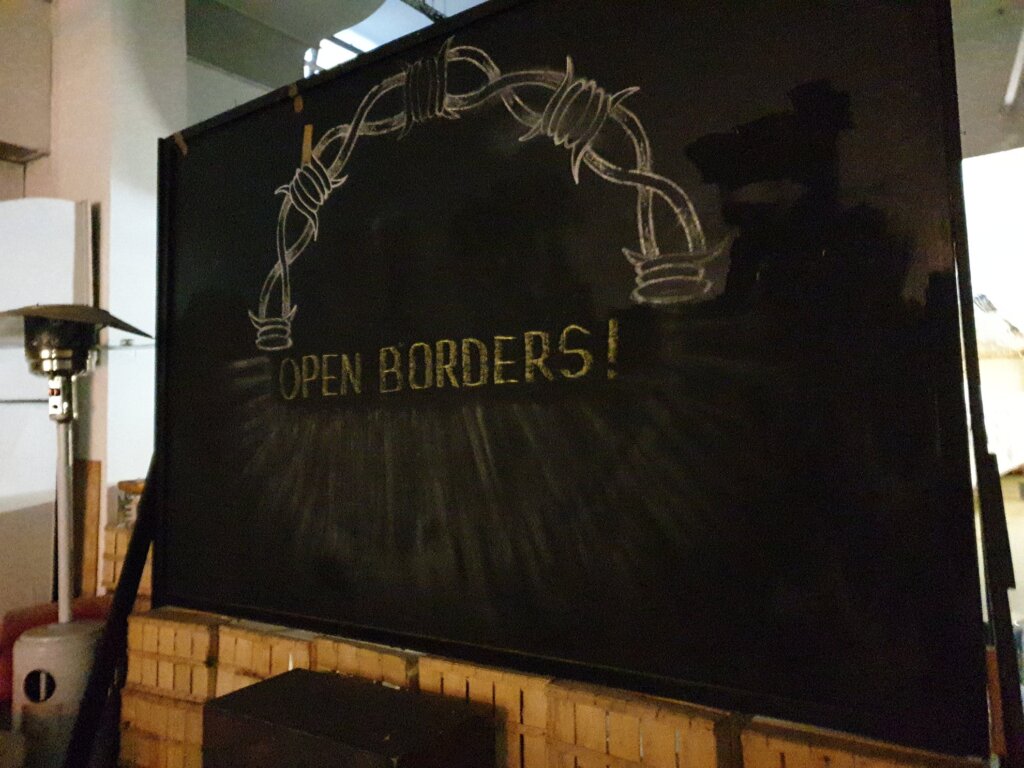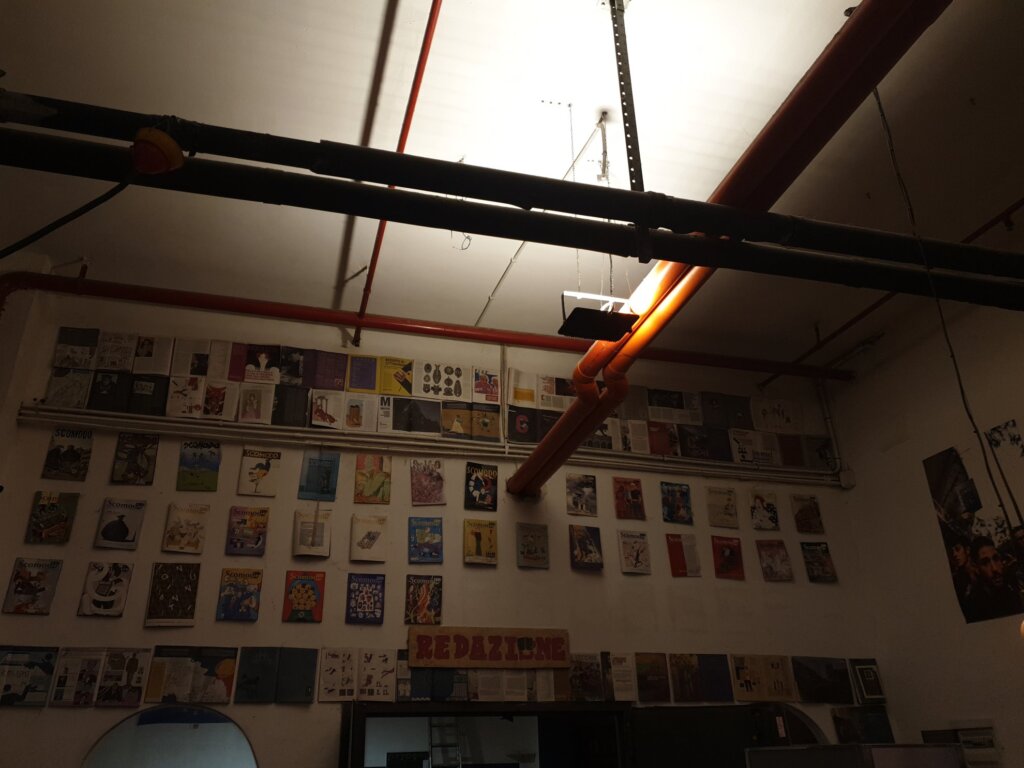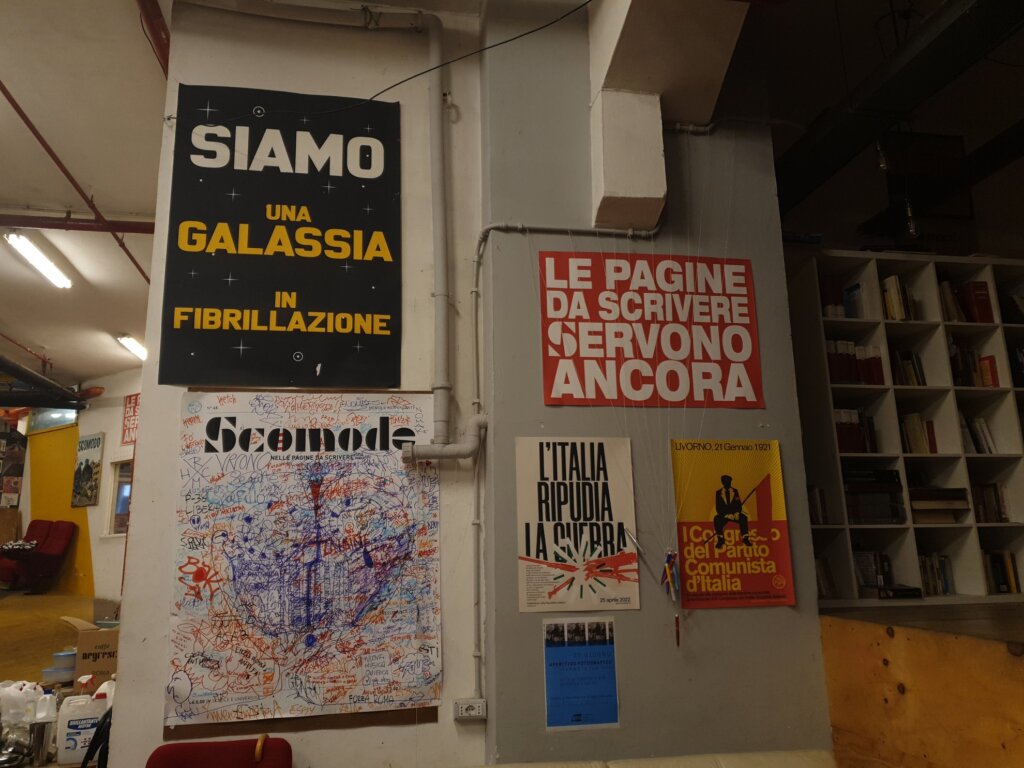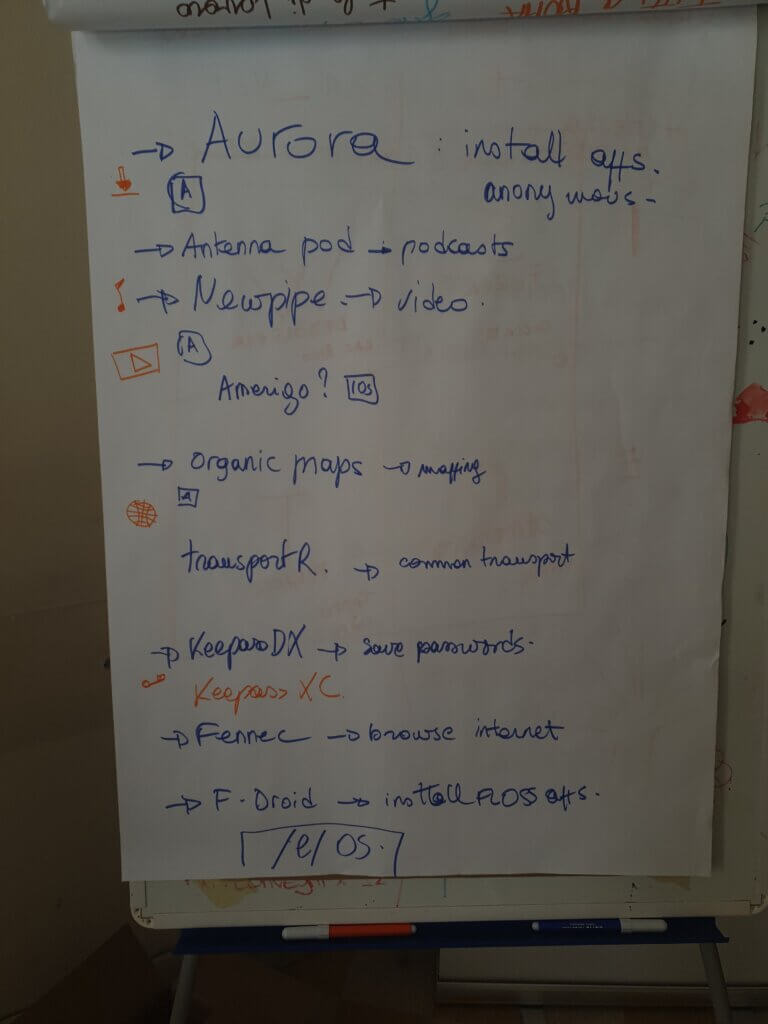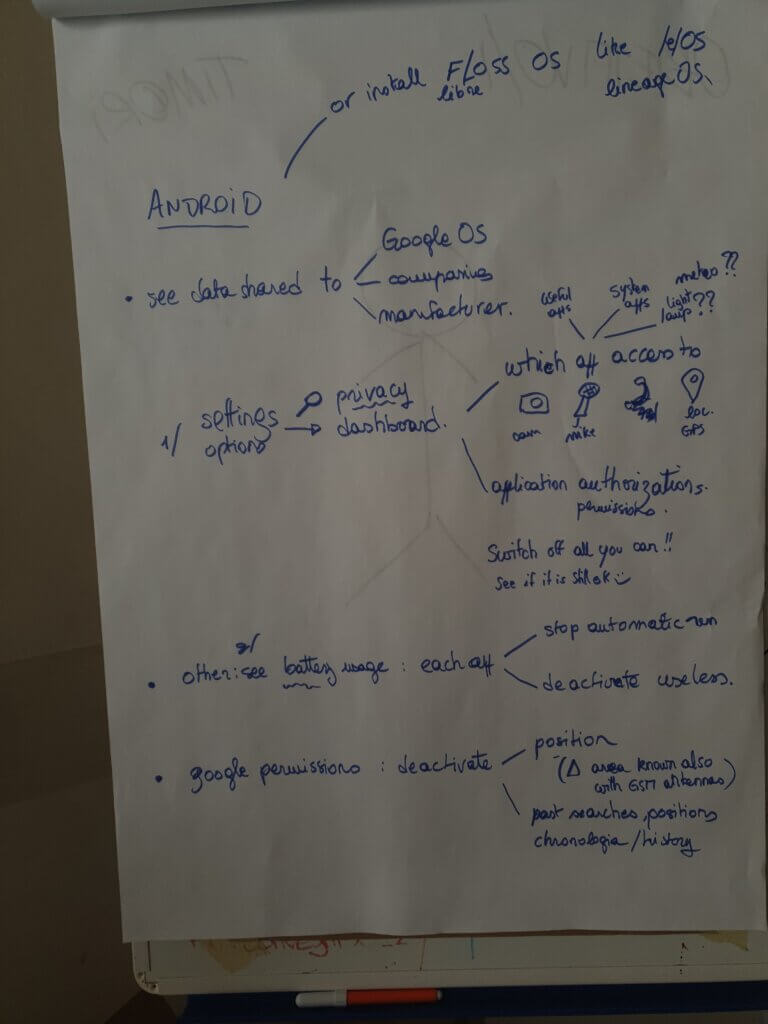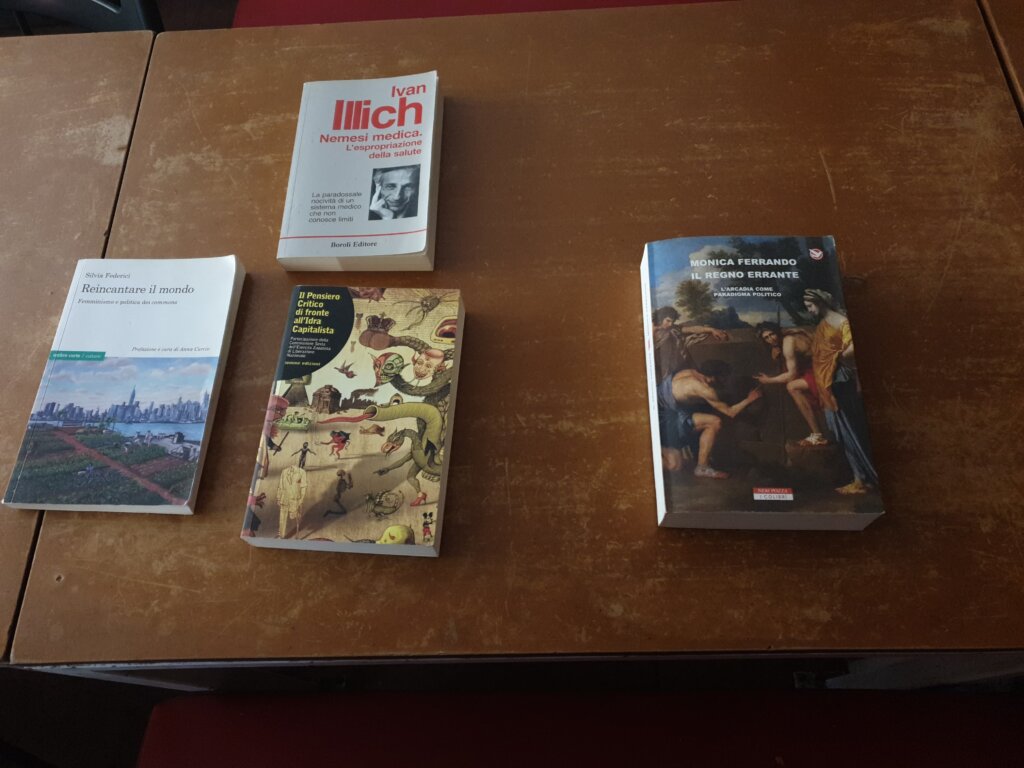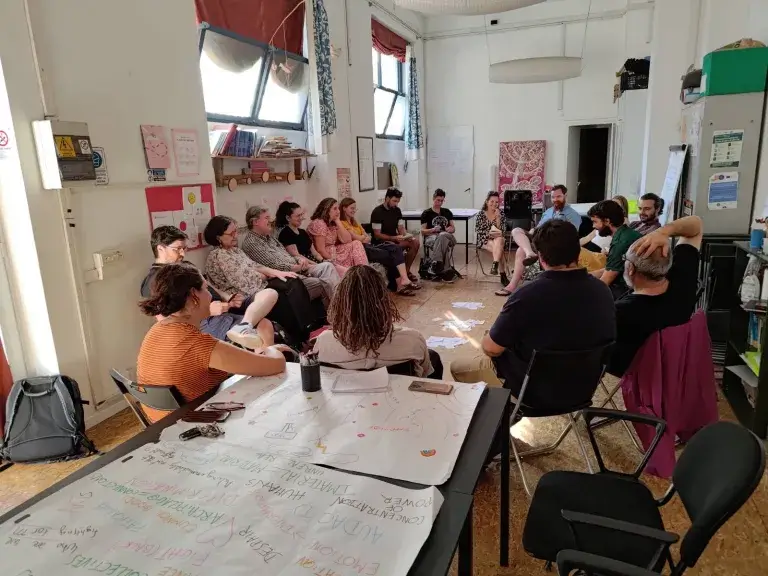Temps de lecture 12 min
As a reminder, the participants in the European ECHO Network exchange belong to 7 different organisations in 5 European countries : Ceméa France, Ceméa Federzione Italia, Ceméa Belgique, Willi Eichler Academy (Germany), Solidar Foundation (European network), Centar Za Mirovne Studije (Croatia), Framasoft (France).
Report on the week in Rome.
Click here to read the article in French.
- Read previous articles :
- The #ECHONetwork tag here on the Framablog
This is the third study visit as part of the ECHO Network program, this visit takes us to Rome, the museum city. Well, us : only Numahell, since COVID decided otherwise for the other three who had planned to come…
After a short trip by bus then train from Lyon, I arrive in the afternoon at Termini station in Rome. With the members of CEMÉA France, we join two members of Solidar to eat together. Questions about popular education cross our minds from the first evening during the meal : what is the difference between popular education and active education ? And active education, what happens if you have no curiosity ? In short, very rich discussions.

The first two days take place in the « Casa del municipio » in Rome. These municipal houses allow the city’s associations to meet there, do activities, and book rooms for free. A bit like some community centers in France, or the community centers in big cities (except that in most big cities it’s paid, for example in Toulouse it’s €60 a year).
We start with icebreaker exercises to get to know each other : spelling each person’s first name by miming the vowels of their first name, communicating to position ourselves in alphabetical order, and finally classifying ourselves according to where we come from, from the furthest to the closest. Led by Christina from CEMEA Mezzo Giorno, these icebreakers will be our ritual at the start of the day.
Day 1 : distance training, screening on ECHO Network, squat visit
Distance learning, face-to-face training : feedback and start of strategies
The first morning is dedicated to feedback from three organizations on distance learning. If you remember, about 3-4 years ago there was a lockdown or two… forcing us to change our training practices.
The Acque Correnti (translation : « the water currents ») must train volunteers for the Italian equivalent of civic service, about 15,000 people per year. The Italian state sets strict rules on civic service training, there are three components.
Suddenly, Covid and bam : the question of distance learning arises. Massimiliano tells how they used Zoom’s breakout room features (we know the free alternative BigBlueButton which also offers this feature).
Founded in 1951 by educators and teachers, the Movimiento di cooperazione Educativo advocates active pedagogy methods. It is part of the FIMEM, an international organization around Freinet pedagogy, created in the 1950s.
Made up of territorial groups, they provide training activities each year, and also lead a research group at the national level, on the disciplines they deal with.
For children, this ranges from kindergarten to secondary school. The training is mainly provided remotely, and this before COVID.
Donatella presents the experience accumulated, and in particular the site senzascuola.wordpress.com.
The CEMEA Federazione Italiana as its name suggests federates the CEMEA of Italy. The training provided by the federation consists of ten courses per year, approximately nine days per course. At the beginning, many trainers refused to teach remotely : it is important to recognize the limits of distance learning. Luciano explains that we must « curbare la technologia » (bend, twist the technology) to our practices, and not the other way around. The question is how to use our active teaching methods remotely. He returns to eleven issues of distance learning, some of which are similar online or on site, such as time and space management, or alternating types of learning.
The question/answer time allowed us to identify some interesting points. One of our hosts, Claudio, says that we should fear dehumanization more than the technologies themselves. In addition, virtual projections restrict our use of body language, by seeing the body through the 2D space of screens. It is therefore important to re-appropriate bodies and spaces in 3D, for example by taking breaks away from our computers.
Accessibility issues also contribute to the marginalization of some participants, particularly the issue of the language barrier.
We agree that we should not abandon online training to private markets : these organizations do not necessarily do active pedagogy and have a more lucrative than emancipatory goal. Unfortunately, these are the organizations that institutions finance, « ed tech » (education technologies), rather than popular education collectives, which have a more ethical aim.
ESS, digital education in Italy
In the afternoon, we collectively reflect on the continuation of the ECHO Network project, answering the following questions : what each of our structures does, what interests us all and finally the future prospects of the project.
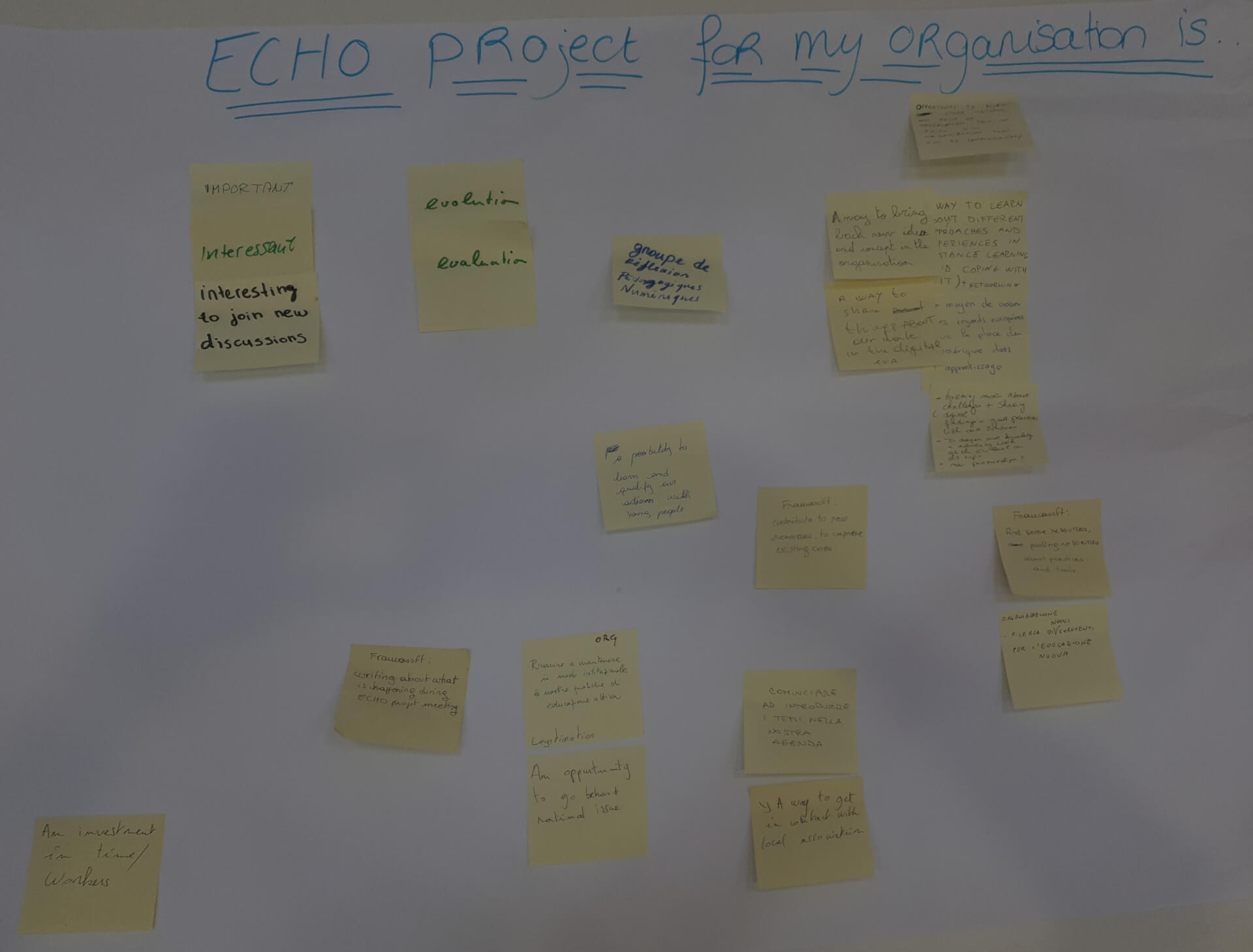
We then split into small groups for a more informal discussion. In my group, we compared practices between Italy, France and Belgium on the ESS (Social and Solidarity Economy) and then on the place of digital teaching in schools.
Christina from CEMEA Mezzo Giorno explains the situation in Italy, where recent reforms have reconfigured the landscape of the ESS (Social and Solidarity Economy).
In Italy, three organizational statuses are included in the ESS :
- Odivu which is a type of volunteer organization
- APIES : associations with social aims, non-profit and with less than 50 % employees
- the « impresa sociale », a new type of company with social components, currently being tested
The boundaries are blurred between these types of organization. The current debate in Italy concerns the public/private boundary and the control of ethics : the third category brings a relaxation of the rules to determine whether an organization falls under the social economy or not. A bit like we can see in France with CSR (Corporate Social Responsibility), there is a significant risk of social-washing.
We learn that in Italy, school principals have much more power than in France and that there is a compartmentalization between schools and associations, including at the teacher level. This prevents associations from intervening in schools and bringing active methods and themes such as awareness of digital issues.
In Belgium, it is paradoxically in « free » (private) schools that there are more and more experiments in active pedagogy. There is therefore something to dig into the socio-structural context of each country on these subjects.
Then, on the subject of digital technology, I spoke for the French case of the Scratch programming language which is used in technology in middle school and of Digital and Technical Sciences in the second year. I could also have spoken about the PIX platform, which is used for the validation of acquired skills.
On the subject of equipment, I explain that in France it often quickly becomes obsolete and is poorly maintained. It depends on the town halls, departments or regions depending on the nature of the establishment.
In Italy, the State invests a lot with EU money, IWBs (Interactive Digital Boards) equip almost every class, but teachers are not trained and do not know a tenth of the possibilities.
According to recent research, about 75 % of teachers use frontal teaching methods in Italy : I wonder how many in France.
Finally, we talk a little about the question of using games or video games in class, and I take the opportunity to mention to my friends the Minetest project (a free equivalent to Minecraft).
An entire building under self-management, a common in the city
In the late afternoon, we visit an emblematic occupation site in Rome, Spin Time Labs, which welcomes refugees, homeless people, and students striking against rising rents. The building has an auditorium, a concert hall, and a radio studio. Many cultural and craft activities take place there, and we discover in particular a paper newspaper published by a collective composed exclusively of young people under 25, Scomodo.
This place is managed by its residents and contributors, there is no rent but people who benefit from the place can offer their time in exchange, make financial donations or offer their help on renovation projects.
About 150 families are housed in this occupied building, where even the Rome City Hall, which is not very left-leaning, tolerates this squat for the services provided there, and even the social workers of the city hall refer people to this place to find help and resources.
After this visit, we met up to chat on a lively street in the Pigneto district, where local residents are particularly involved in the life of the neighborhood.
Day 2 : AI, workshops
The next day, September 27, Claudio receives us to introduce us to the CSV (Centro di servicio volontario) Lazzio. The place is a bit like his home, we’re in our element.
Christina leads a game to stretch : everyone chooses a gesture that corresponds to them and has designated it throughout the game, which forced us to have visual attention during this moment. This type of popular education exercise aims to improve group cohesion, and it works !
Presentation on AI
Then we attend the presentation by Marika Mashitti, a doctoral student at the University of Roma tre in the Department of Educational Sciences.
She begins with definitions (what AI is, the different types of systems) and recalls that AI is above all a scientific discipline. Then she goes on to give a brief history, which shows the speed of the latest advances, especially since the start of the pandemic, as if it had become urgent to develop this field.
For her, it is a question of power. Indeed, who is involved in AI research ? Personalities like Elon Musk and web giants such as Alphabet, Meta, Microsoft, etc.
She gives some examples of biases due to AI : discrimination in facial recognition (only 52 % success in recognizing faces of black women), targeted advertising for job opportunities, profiling.
The word “Algocracy” (“power through algorithms”, coined by Danaher, 2018), is dropped. She insists on the fact that technology is never neutral. She addresses the point of singularity, taking up the proposal of Frederico Cabitza, Professor at the University of Milan. He defines singularity as the moment when humans choose to leave almost complete control to the machine rather than its classic definition, namely the moment when the latter becomes indistinguishable from a human.
The members of the assembly appreciated her presentation, both its content and the energy that drives it and asked many questions.
Workshop on digital issues
We start the afternoon with a game that I proposed, and that I had already tried at the Climate Camp 2022. It involves positioning yourself on two axes for a given question : one axis according to your level of confidence and the other your level of comfort, by splitting into three groups. Christina, Morgane and Claudio prepared a list of 4 issues :
- online training
- AI
- political regulations on digital technology
- the power to act
Interesting discussions took place, with each person having to explain their choice of position. This exercise allowed people who had spoken little to express themselves, the small groups making it easier to listen. I learn that two people in the group regularly use generative AI for their daily work in communication, and that this morning’s conference made them aware of the issues.
Then we resume the discussions, either around the work done the day before, or on the writings started in the morning, to summarize them on an A2 sheet : my group represented all this in a word cloud.
Day 3 : workshops, “Zazie Nel Metro”, retrospective of the week
Improv digital workshops
On Thursday, we meet in the same place for two workshops on digital technology, imagined the day before following the reorganization of part of the program, due to the absence of one of our covid comrades.
We ran these two workshops in parallel twice, so that each group could benefit from them.
- mobile workshop : settings to improve your privacy, and some interesting free applications. Led by Domenico and myself.
- desktop / internet workshop : free software and applications to organize yourself, including Zourit. Led by Lucas from CEMÉA Belgium and Olivier from CEMÉA France
I was surprised because there were only a few of us who knew these tools and tips. The participants really enjoyed discovering them. I find this workshop format practical for getting started and avoiding Prévert-style lists, which sometimes drown the audience.
Visit to “Zazie Nel Metro”
Zazie Nel Metro is an associative bar and its associated bookstore, managed by a collective of very nice people, who organize various artistic and civic events. They organized 3 days later a festival called “Zazie la bona vita”, combining militant / political discussions and concerts.
Our host presents us with a selection of books by anarchist or left-wing authors, including « Cimento, arme di construzionna di massa » by Anselm Japp, or a book by Ivan Illich that we appreciate at Framasoft. This strangely echoes too many useless, imposed and ecocidal construction projects…
I will go back if I ever come back to Rome (e perchè no :))
Looking back on the 3 days
We meet in the afternoon at the CEMEA Mezzo Giorno premises (which means « Midday » but also « center of Italy »).
Morgane leads the next moment by asking everyone to write down on post-its three things from our stay, which we classify on three illustrated posters :
- what to keep (in a fridge)
- what I’m going to think about in the coming weeks (🧠)
- what to throw away (a very well-drawn trash can)
School Party Invitation
To end this last day, some of us attend the school party in which our hosts from CEMEA Mezzo Giorno, Christina and Domenico intervene. This school is located in a socially mixed working-class neighborhood ; it is interesting because CEMEA Mezzo Giorno have initiated a multitude of projects for over ten years (joint activities, music workshops, etc.) with the aim of ensuring that the migrant population is better accepted : and it works.
I admit that I have a little moment of nostalgia, as this school party atmosphere reminds me of the one my children went to <3. And it is time to say goodbye, I will visit Rome the next day and continue my journey back to France quietly by train, having the privilege of having time in front of me this time.

